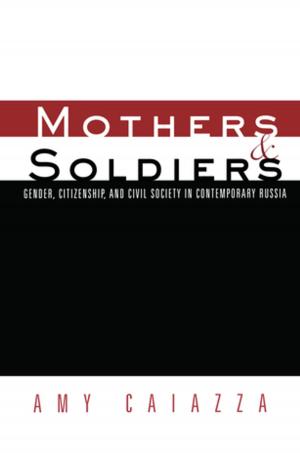Network Centric Warfare and Coalition Operations
The New Military Operating System
Nonfiction, Social & Cultural Studies, Political Science, International, International Security, History, Military, Strategy| Author: | Paul T. Mitchell | ISBN: | 9781134064502 |
| Publisher: | Taylor and Francis | Publication: | February 5, 2009 |
| Imprint: | Routledge | Language: | English |
| Author: | Paul T. Mitchell |
| ISBN: | 9781134064502 |
| Publisher: | Taylor and Francis |
| Publication: | February 5, 2009 |
| Imprint: | Routledge |
| Language: | English |
This book argues that Network Centric Warfare (NCW) influences how developed militaries operate in the same fashion that an operating system influences the development of computer software.
It examines three inter-related issues: the overwhelming military power of the United States; the growing influence of NCW on military thinking; and the centrality of coalition operations in modern military endeavours. Irrespective of terrorist threats and local insurgencies, the present international structure is remarkably stable - none of the major powers seeks to alter the system from its present liberal character, as demonstrated by the lack of a military response to US military primacy. This primacy privileges the American military doctrine and thus the importance of NCW, which promises a future of rapid, precise, and highly efficient operations, but also a future predicated on the ‘digitization’ of the battle space. Participation in future American-led military endeavours will require coalition partners to be networked: ‘interoperability’ will therefore be a key consideration of a partner’s strategic worth.
Network Centric Warfare and Coalition Operations will be of great interest to students of strategic studies, international security, US foreign policy and international relations in general.
This book argues that Network Centric Warfare (NCW) influences how developed militaries operate in the same fashion that an operating system influences the development of computer software.
It examines three inter-related issues: the overwhelming military power of the United States; the growing influence of NCW on military thinking; and the centrality of coalition operations in modern military endeavours. Irrespective of terrorist threats and local insurgencies, the present international structure is remarkably stable - none of the major powers seeks to alter the system from its present liberal character, as demonstrated by the lack of a military response to US military primacy. This primacy privileges the American military doctrine and thus the importance of NCW, which promises a future of rapid, precise, and highly efficient operations, but also a future predicated on the ‘digitization’ of the battle space. Participation in future American-led military endeavours will require coalition partners to be networked: ‘interoperability’ will therefore be a key consideration of a partner’s strategic worth.
Network Centric Warfare and Coalition Operations will be of great interest to students of strategic studies, international security, US foreign policy and international relations in general.















